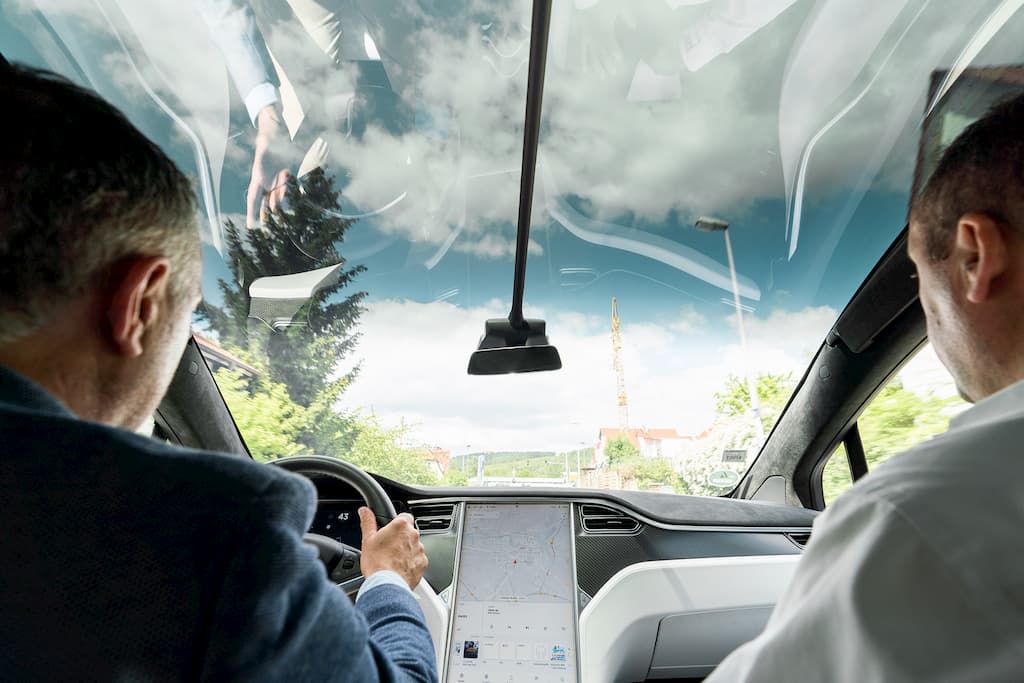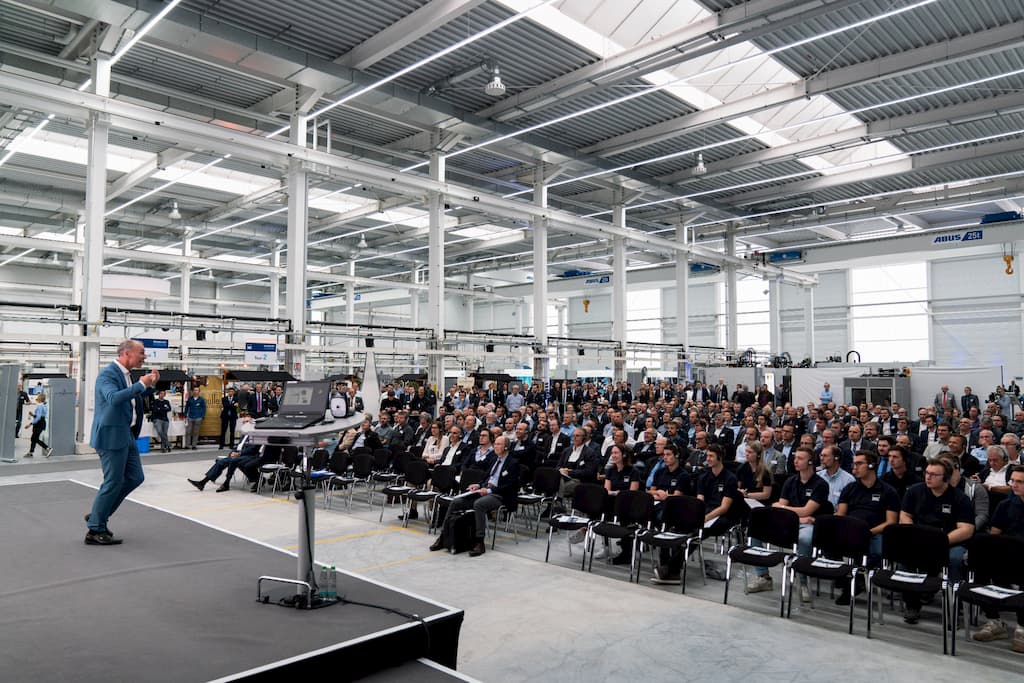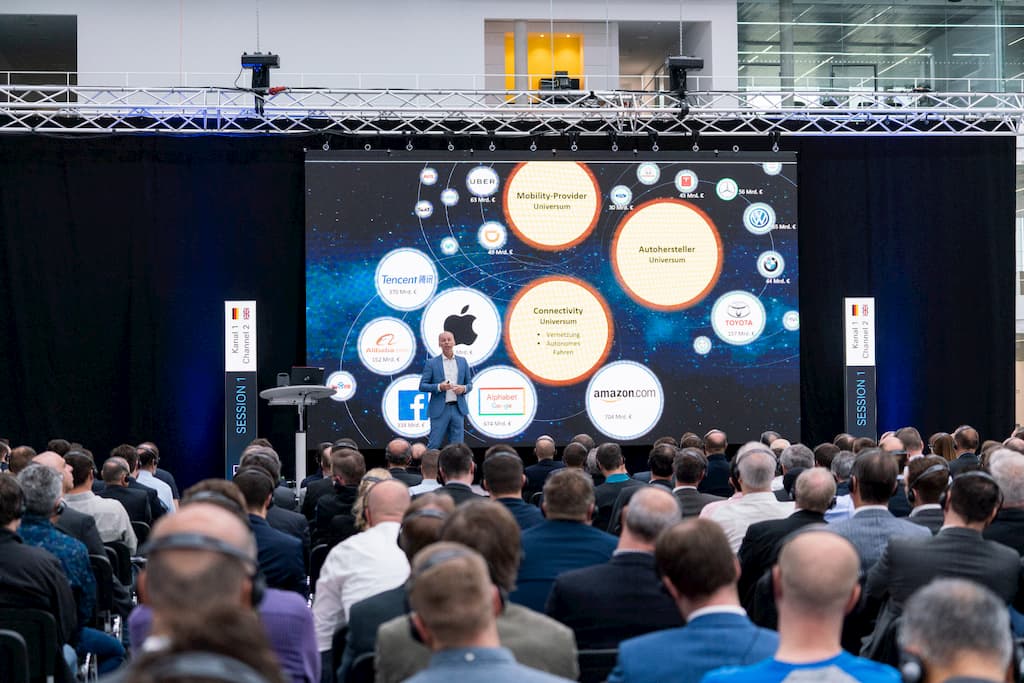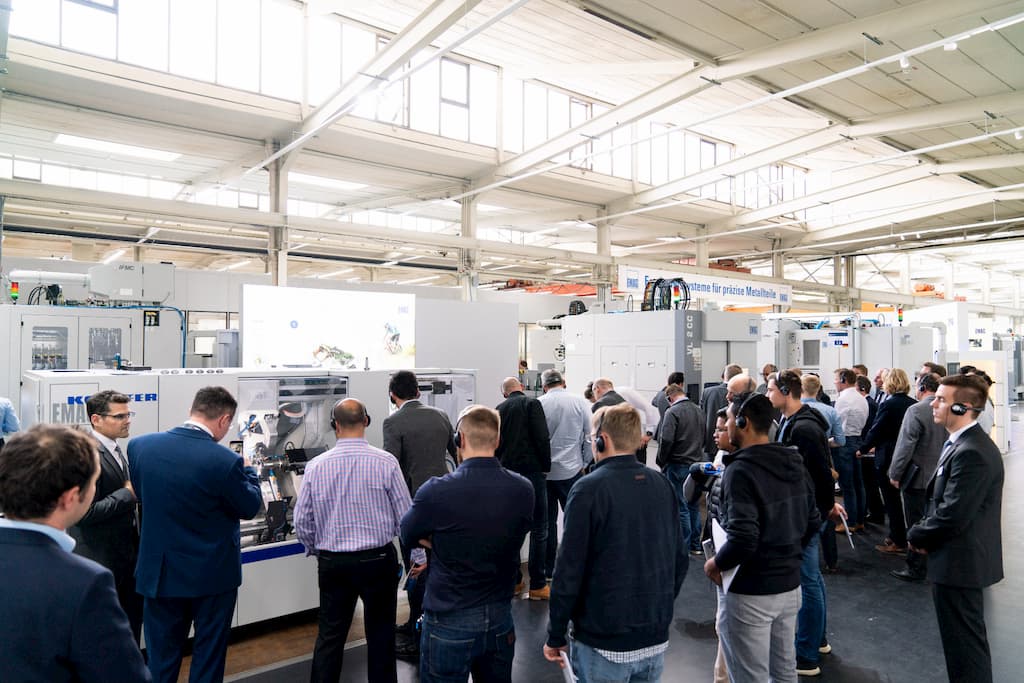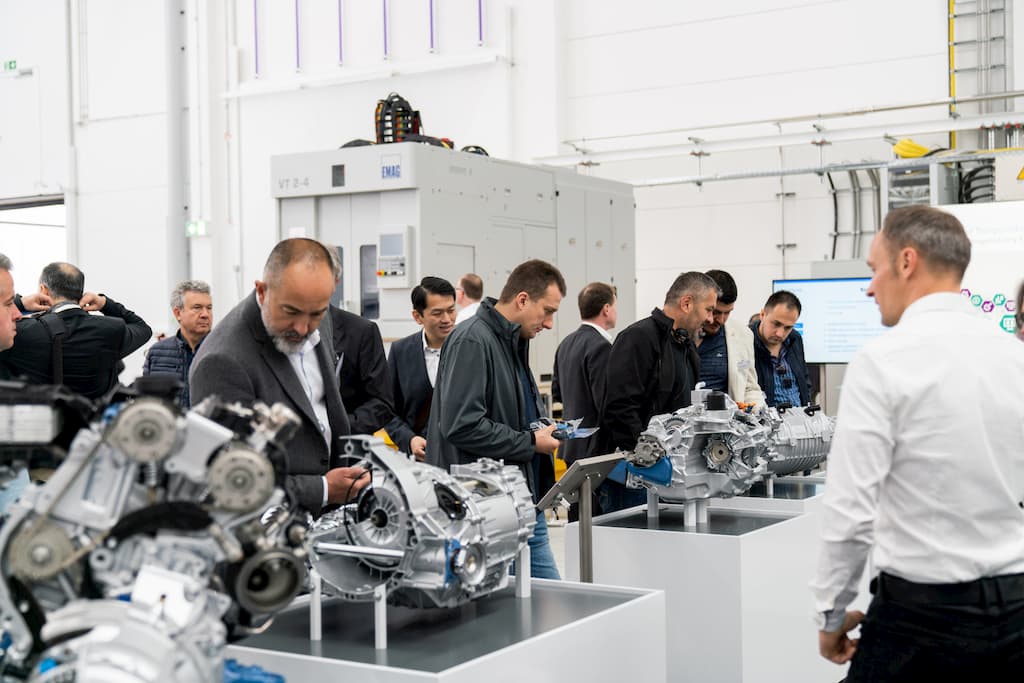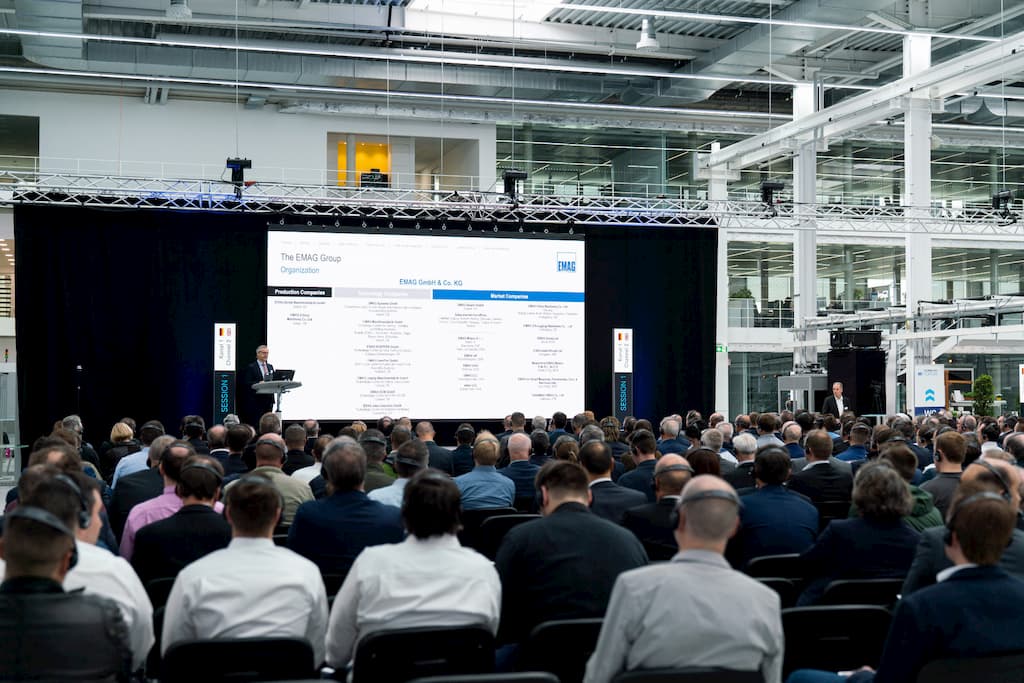The transformation in the automotive industry is coming fast, and those affected should prepare now— this was the primary message at the 2019 EMAG Technology Forum. The event provided a lot of food for thought for attendees. Which key messages stood out?
The current figures for the development of e-mobility are impressive: According to the McKinsey’s Electric Vehicle Index, combining battery-operated vehicles and plug-in hybrids together, car manufacturers made more than 90 new electric cars public in the past year. And by 2020, more than 300 additional models will make their world premiere. But what do these figures mean for the businesses involved? And which production solutions and industry 4.0 approaches are required to manufacture these models efficiently? These and similar questions were the focal point of this year’s EMAG Technology Forum held in May. High-level experts from the fields of science, economics and mechanical engineering gathered for two days at the EMAG headquarters in Salach, Germany—a recap of events can be seen in this video:
“The response was very positive and helped us to affirm our thoughts,” sums up Friedemann Lell, Managing Director of EMAG Salach GmbH. “We wanted to offer participants a creative forum that also allowed them the freedom to discuss personal questions and challenges with experts. After all, the many facets of digitalization and e-mobility are very concerning for the industry and a challenge for production planners.”
Renowned Experts Draw the Big Picture
Both days started off with presentations from renowned keynote speakers, like Prof. Matthias Klingner, Head of the Fraunhofer Institute for Transportation and Infrastructure Systems and Prof. Stefan Bratzel, Director of the Center of Automotive Management, who addressed broader issues. Klingner criticized the current discussion about diesel bans. He claimed that they do not contribute to accelerating the development of e-mobility. On the contrary, according to Klingner, who made himself available for an interesting interview prior to the event, the time has now come to develop a holistic transportation policy that would allow for lower emissions. On the second day, Prof. Bratzel outlined the many facets of “tomorrow’s mobility” in line with his presentation title. From his perspective, it will be shaped by e-mobility—only about 50 percent of new vehicle registrations in 2030 will have a combustion engine. Simultaneously, “data usage” will continue to increase in importance. For example, cars will feature connectivity functions enabling customers to access new services. In addition to these, there will be new mobility services such as Car as a Service, which will radically transform the automotive industry’s business model, according to Bratzel. Ultimately, this is why it is essential for the automotive industry to acquire extensive knowledge of software and to seek collaborations with big data players, the expert concluded.
Digitalization in Mechanical Engineering
Another interesting contribution to the EMAG Technology Forum came from Prof. Michael Zäh, Chair of Machine Tools and Manufacturing Technology at the Technical University of Munich. He broached the issue of how machine tool builders and users of big data, and concepts such as the digital twin can benefit. Among other things, Zäh said that one should carefully consider each individual case. At the end of the day, when it comes to industry 4.0 applications, it always depends on where a business sees its core competencies and its competitive edge. Based on this, the business must then decide which 4.0 applications it needs to implement step by step, a key takeaway from Zäh’s talk, which he also brushed upon in this interview. According to Zäh, the current issue for the machinery industry is to take existing approaches to AI (artificial intelligence) in IT and carry them over to new products such as condition monitoring and predictive maintenance.
New Manufacturing Solutions
The focus of the EMAG Technology Forum was to hold an open event with a creative atmosphere—which lead to the unique format of events: There were a large number of expert presentations, and often three of these “sessions” took place in parallel. This allowed participants to chose and create their own daily schedule – giving them the opportunity to focus on what mattered most to them. The sessions gave attendees the opportunity to learn more about the digitalization of machine tools, the potential of additive manufacturing, complete machining of transmission components with multi-technology machines and turnkey manufacturing solutions for new types of electric motor parts—as a matter of fact, EMAG presented an outstanding comprehensive example of this here on its website. There was also a “themed area” in EMAG’s new production facilities, in which mechanical engineering experts advised about innovations involving industry 4.0, virtual reality, manufacturing systems and the challenges of manufacturing electric motors. “We’re convinced that this was the right format for the event. Topics such as ‘e-mobility’ and ‘digitalization’ are simply far too complex. Each and every one of our customers has different problems to solve. The EMAG Technology Forum has taken this into account,” says Friedemann Lell in conclusion.
